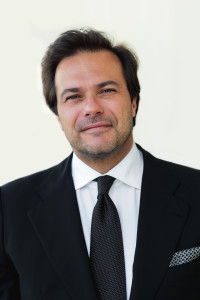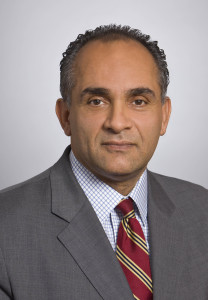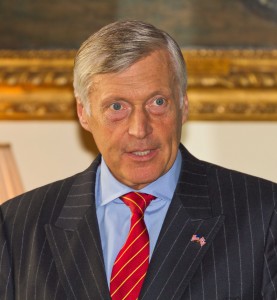- Year-on-year P&I tonnage rises by 10%, premium by 4%, FD&D tonnage and premium grow by 8% and 2% respectively.
- Club’s retained claims exposures continue to develop favorably into 2019.
- Investment earnings rebound substantially in January 2019 following creditable 2018 year-end performance.
- Eagle Ocean Marine enjoys year-on-year revenue growth of 42% as fixed premium market continues to undergo realignment.
NEW YORK, FEBRUARY 25, 2019: The American Club experienced a very positive outcome to the recently-concluded 2019 P&I renewal season. The Club’s mutual P&I and FD&D business saw increases in both tonnage and revenue, while the Club’s fixed premium facility, Eagle Ocean Marine (EOM), recorded a significant rise in year-on-year income. There was also good news on the claims and investment fronts.
The American Club’s mutual P&I business saw tonnage increase by more than 1.6 million gt as of February 20, 2019 by comparison with the previous year, and by just under 900,000 gt in regard to mutual FD&D entries. Year-on-year premium growth was more subdued – as soft market conditions continued to prevail – with increases of 4% for P&I and 2% for FD&D entries. However, the average rate per gt on renewing P&I entries was about 1.5% higher than the expiring figure, a positive sign for risk pricing into 2019 and beyond.
The Club’s retained claims development for the most recent policy year remained favorable, emergence for 2018 at the twelve-month point being some 26% better than 2017. While the figures are immature, they augur well for the future, although the incidence of larger claims within the International Group Pool over recent months will counterbalance to some extent the very favorable results of the Club’s own Members.
The Club’s fixed premium brand, Eagle Ocean Marine (EOM), also saw substantial growth. It acquired nearly 450,000 gt of new business over the renewal season, reflecting additional revenue of about $2.75 million. Year-on-year premium for EOM increased by 42% as of February 20, 2019, while its claims performance continued to develop favorably. EOM complements the Club’s mutuality as it grows its footprint throughout the world. In a period of some uncertainty for the fixed premium P&I market, EOM remains committed to providing the gold standard of service in its field.
Having successfully weathered financial market turmoil toward the end of 2018, the American Club’s investment portfolio has performed well into the current year. While the Club’s investment return was flat at year-end 2018 (though substantially better than benchmark), its portfolio generated a return of 2.7% for January 2019 alone, with a positive 1% in the fixed income space being further buoyed by an equities’ performance in excess of 7% for the period.
Speaking in New York today, Joe Hughes, Chairman and CEO of SCB, Inc., Managers of the American Club, said: “The 2019 renewal was thoroughly positive for the American Club and Eagle Ocean Marine. Both performed exceptionally well in a challenging environment. Their success in attracting new business speaks to the confidence of the global maritime community in the Club’s and EOM’s ability to deliver insurance services of the highest quality and relevance to their customers.
Our outstanding people are at the core of our continuing success, and I am certain that the American Club and EOM will continue to be the leading choice for those we are proud to serve over the years ahead.”
Notes to Editors
The American Club
American Steamship Owners Mutual Protection and Indemnity Association, Inc. (the American Club) was established in New York in 1917. It is the only mutual Protection and Indemnity Club domiciled in the entire Americas and its headquarters are in New York, USA.
The American Club has been successful in recent years in building on its US heritage to create a truly international insurer with a global reach second-to-none in the industry. Day to day management of the American Club is provided by Shipowners Claims Bureau, Inc. also headquartered in New York.
The Club is able to provide local service for its members across all time zones, communicating in eleven languages, and has subsidiary offices located in London, Piraeus, Hong Kong, Shanghai and Houston, plus a worldwide network of correspondents.
The Club is a member of the International Group of P&I Clubs, a collective of thirteen mutuals which together provide Protection and Indemnity insurance for some 90% of all world shipping.
For more information, please visit the Club’s website http://www.american-club.com/
P&I Insurance
Protection and Indemnity insurance (commonly referred to as “P&I”) provides cover to shipowners and charterers against third-party liabilities encountered in their commercial operations; typical exposures include damage to cargo, pollution, death/injury or illness of passengers or crew or damage to docks and other installations.
Running in
parallel with a ship’s hull and machinery cover, traditional P&I cover
distinguishes itself from usual forms of marine insurance by being based on the
not-for-profit principle of mutuality where Members of the Club are both the
insurers and the assureds.










 NITY, EXEMPLIFYING NEW YORK’S OUTREACH TO THE WORLD.
NITY, EXEMPLIFYING NEW YORK’S OUTREACH TO THE WORLD.